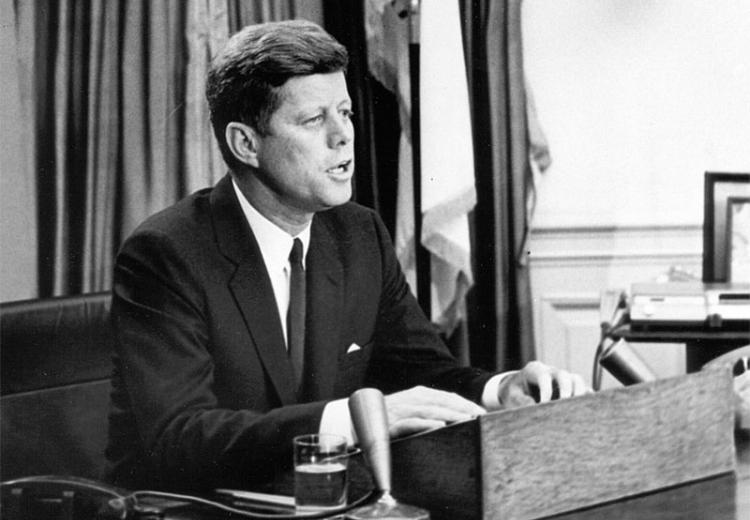JFK, LBJ, and the Fight for Equal Opportunity in the 1960s

President Kennedy addresses the nation on Civil Rights, June 11, 1963.
"We are confronted primarily with a moral issue. It is as old as the scriptures and it is as clear as the American Constitution. The heart of the question is whether all Americans are afforded equal rights and equal opportunities, whether we are going to treat our fellow Americans as we want to be treated. ... [O]ne hundred years of delay have passed since President Lincoln freed the slaves, yet their heirs, their grandsons, are not fully free. They are not yet free from the bonds of injustice. And this nation, for all its hopes and all its boasts, will not be fully free until all of its citizens are free."
-Radio and Television Report to the American People on Civil Rights, available from the John F. Kennedy Presidential Library linked to the EDSITEment-reviewed American President
This lesson provides students with an opportunity to study and analyze the innovative legislative efforts of Presidents Kennedy and Johnson in the social and economic context of the 1960s. By reading and listening to Kennedy's and Johnson's statements, students will examine their intentions for mounting the fight for equal opportunities for all Americans. Students will use online primary source documents to examine and analyze the Americans' struggles over social and economic rights in these tumultuous years.
Guiding Questions
What factors shaped the domestic policies of Presidents Kennedy and Johnson?
Learning Objectives
Explain the reasons why the Kennedy administration developed the "New Frontier."
Identify the ways in which the Johnson administration expanded upon the Kennedy administration's proposals.
Assess the strengths and weaknesses of United States domestic policies adopted in the 1960s.
Analyze the political techniques President Johnson used to persuade Americans to support this legislation.
